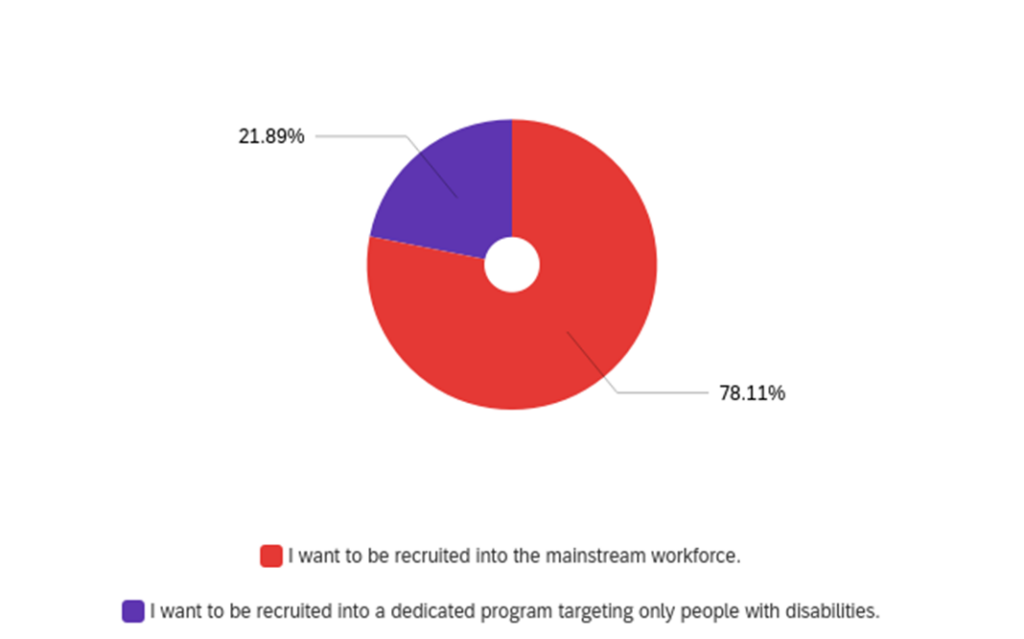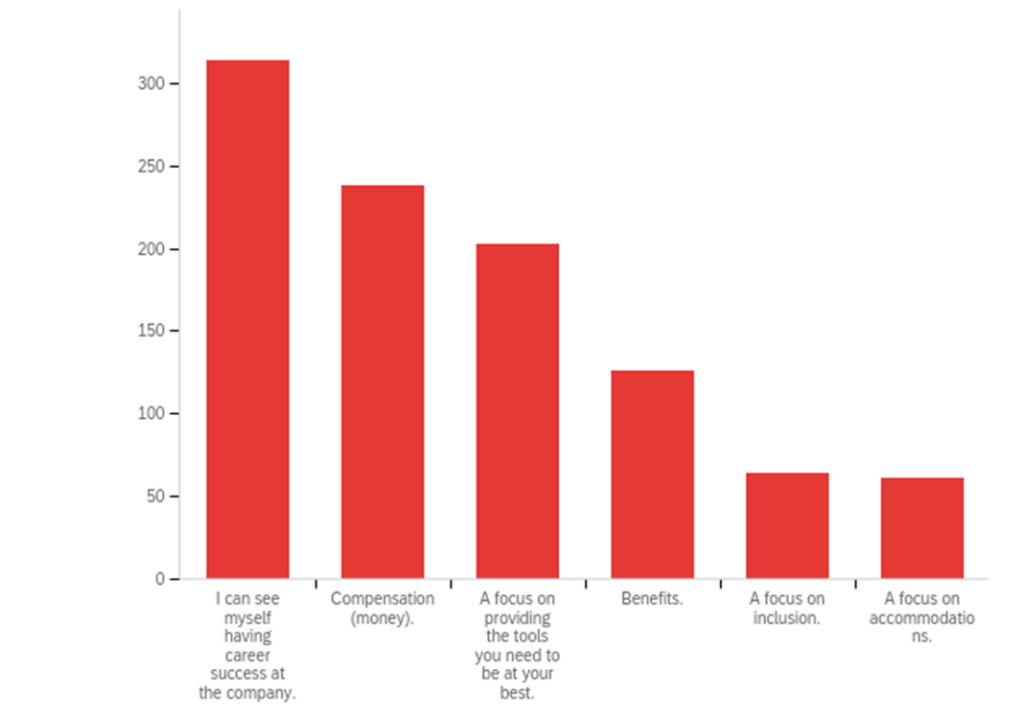Talent Pipelines and PWD 1 2
Intent to Hire
In the past decade there have increased attempts to deliberately hire People with Disabilities (PWD) as part of public and private workforces. This goal, driven by a combination of regulatory requirements and desires for more inclusive working environments, often leads to suboptimal policies in attracting the best talent from the disability marketplace. The source of these errors is threefold. First is an assumption that PWD will disclose their disability, either during the hiring process or once hired. Second, in part as a reaction to the first, are the development of hiring pipelines intended to deliberately target PWD. Third, is a poor understanding of what makes a given opportunity attractive to potential PWD employees. This research brief is intended to address the second and third errors.
Disability and Talent Pipelines
RoDG research has consistently indicated that PWD prefer not to be hired as part of narrow hiring processes specifically targeting them. In one 2022 survey, for example, RoDG found that only 22% of surveyed PWD preferred to be hired as part of a targeted hiring strategy. The remaining 78% instead preferred to be hired as part of mainstream hiring practices (see Figure 1).3
The reasons for this preference tied to perceptions of future career success. In multiple focus groups with PWD, respondents have indicated targeted pipelines frequently lead to placements in positions that fall short of candidates’ perceived skillsets – placing them in a job, rather than a job in which they would both excel and have growth opportunities. Moreover, targeted hiring presupposes those candidates are willing to disclose their disability. This has consistently been shown not to be the case. Many PWD perceive targeted hiring as limiting their career mobility, and exposing them to potential biases of managers upon being hired.
Figure 1: PWD Preferences for Hiring Pipelines

What do PWD Candidates Want?
The key to successfully hiring and retaining top PWD talent is to ensure that positions are attractive to such candidates. This is a far easier endeavour that is commonly believed. Many hiring managers assume the key wants of PWD job candidates center on accommodations and benefits. This could not be farther from the truth. PWD want the same things as any other candidate: the opportunity to grow their careers and maximize compensation. RoDG research indicates that these factors are far more important than accommodations or a focus on inclusion. When asked as part of a survey on hiring processes for PWD, only 6% of respondents indicated accommodations were their most important consideration when applying for a job. Another 6% indicated a focus on inclusion was the most important. Conversely 31% and 24% indicated seeing themselves as having career success or compensation, respectively, as the most important factor in applying for a job (see Figure 2).4
Figure 2: When applying for a job, which of the following is most important to you?

Implications
The implications of this research are clear: to ensure firms are able to hire PWD workers, they must counterintuitively move away from targeted hiring processes, or the idea that a focus on inclusion or accommodations alone is sufficient to attract talent. Instead, firms should focus on what makes a great employee experience: the potential for success, compensation, and a focus on providing employees with the tools needed to succeed in their role. Note that none of these require an employee to disclose their disability.
Accessibility of this document
This document respects various best practices regarding accessible documents, including our choice of typeface, type size, hue contrasts, margins, document structure, and heading styles.
- This document complies with all applicable EN 301 549, WCAG 2.0 and 2.1 Level A and Level AA guidelines for accessible digital documents. For alternative formats, contact Return on Disability at mark@rod-group.com. We always strive for plain language; however, we often cannot write about conformance and compliance using simpler language without losing critical meaning. ↩︎
- © The Return on Disability Group. All rights reserved. Access to this report and its contents is provided through a discreet contract between the company named in the report and The Return on Disability Group. Redistribution is prohibited unless provided in writing by both The Return on Disability Group and the named subscriber. The information contained herein is not represented or warranted to be accurate, correct, complete or timely. This report is for information purposes only and should not be considered a solicitation to buy or sell any security. ↩︎
- Return on Disability quarterly survey, first quarter 2022. N=1,004 self-identified PWD. ↩︎
- candidates center on accommodations and benefits. This could not be farther from the truth. PWD want the same things as any other candidate: the opportunity to grow their careers and maximize compensation. RoDG research indicates that these factors are far more important than accommodations or a focus on inclusion. When asked as part of a survey on hiring processes for PWD, only 6% of respondents indicated accommodations were their most important consideration when applying for a job. Another 6% indicated a focus on inclusion was the most important. Conversely 31% and 24% indicated seeing themselves as having career success or compensation, respectively, as the most important factor in applying for a job (see Figure 2).[1] ↩︎


